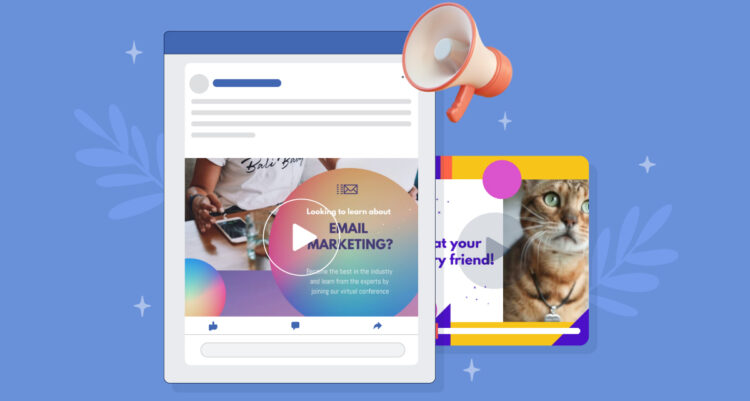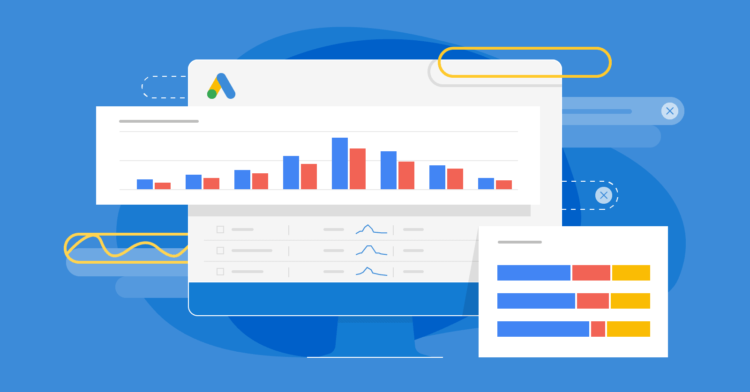The online world of digital marketing is a minefield – especially when you try to traverse the expansive glossary of terms. In PPC (pay-per-click) advertising, it is no exception. Fortunately, in this article, we’re going to share 10 crucial PPC marketing terms, what they mean, and why they are important for you to know.
For your reference, there are dozens and dozens of PPC terms, but you don’t need to learn them all at once. Bite-size chunks so as not to overwhelm and burn yourself out. With all that being said, let’s get started…
Page Contents
1. Bounce Rate
The word ‘bounce’ in digital marketing refers to when an internet user visits your website and then leaves before clicking on any other pages. ‘Bounce rate’ refers to the frequency at which this occurs.
But why is this important? Simply put: the higher your bounce rate, the more evident it is that there is something wrong. If people keep abandoning your website immediately, you either have an issue with the website itself, or your PPC ads are not setting the right expectations. Reduce your bounce rate!
2. Call to Action (CTA)

Source: animoto.com
Next we have ‘call to action’ (or CTA). This refers to any action that you encourage your visitors to take such as calling your business, joining your newsletter, or booking an appointment.
You should have a CTA on your PPC ad to let people know to follow the link. Following that, you should have additional CTAs when they arrive on your website. What direction do you want them to head in? What is the overall objective?
Why is this important to know? Because you must not underestimate the immense power of a well-written call to action. Get it right and your ads will be far more successful.
3. Click-Through Rate (CTR)
At number three we have ‘click-through rate’ (or CTR). This refers to the ratio of the number of ‘clicks’ on your PPC ad compared to the number of times that the ad itself was displayed.
Why is it important? Because your CTR is a valuable metric that can help you accurately measure your PPC ad’s performance. If you have a low CTR then clearly your ad copy is not compelling enough.
4. Conversion Rate
The ‘conversion rate’ is the ratio of people who convert (e.g., sign up / buy a product) divided by the number of clicks.
Why is this important? Because your conversion rate can help you determine how often a click converts into business – ultimately letting you know how successful your ad campaign is. After all, if you’re not converting those clicks, what’s the point?
5. Facebook Ads

Source: visme.co
‘Facebook ads’ refer to the ads that you can create, targeting a very specific demographic based on the data gathered by Facebook. You can create highly specialised ads for a very specific type of consumer.
You’re probably wondering why ‘Facebook ads’ has made its way into this glossary. The reason why this is important is because many people mistake ‘PPC marketing’ as being solely Google ads. This is not the case. Pay-per click advertising refers to any PPC ads on any platform, including Instagram and Pinterest.
6. Geotargeting
‘Geotargeting’ (aka location targeting) refers to the process of limiting your adverts to a specific geographical location. For example, this digital marketing agency in Singapore might wish to create personalised ads for business owners in Singapore – as opposed to advertising on a global scale.
Why is this important? Because it serves as a reminder that your PPC ads can be as broad or as direct as you like. You’re not obliged to target a global audience. Instead you can niche down and go after people in a very specific geographical region – whether it be a country, state, or city.
7. Keyword Matching Options

Source: backlinko.com
‘Keyword matching options’ (or ‘match types’) refer to your keyword level settings. For example, you can control if and when your adverts appear depending on whether or not the search queries are an exact match of your focus keyword, or if they are a closely related phrase.
Why is it important to know about keyword matching? Because there are many options to choose from and it can give you yet even more control over your budget. These match types include: broad, modified broad, phrase, exact, and negative match types.
8. Landing Page
The ‘landing page’ refers to the specific page on your website (or otherwise) marked by your destination URL. In other words, it is the location in which your users find themselves after clicking on one of your PPC ads.
So, why is this important to know? Simply put, many people make the mistake of creating very specific PPC ads and then directing the traffic to a generic home or contact us page. For the best results you should have a dedicated landing page that is optimised according to the specific product or promotion that you are advertising.
9. Negative Keywords

Source: nozzle.ai
‘Negative keywords’ (or negative match as briefly mentioned earlier) refer to any keywords that are added to your account indicating search phrases that you do not want your ads to be displayed for.
Why is it important? Because by identifying negative keywords, you can significantly reduce the number of unqualified leads heading to your website. If you want a very specific type of user to click on your ad, the right negative keywords can effectively block them out.
10. Quality Score
‘Quality score’ refers to a ranking system that has a number of disclosed (and undisclosed) factors search engines use to determine the overall relevancy of a keyword in comparison to the ads and respective landing pages linked to.
Why is quality score important to know? Because the more relevant your chosen keyword bids are to your ad campaign, the higher your advert will rank and as such, the less money you will invariably spend on bids. In other words, you want as high a PPC quality score as possible and proper keyword research can accommodate this.
Final Thoughts
While the above 10 PPC terms are merely the tip of the iceberg, they should stand you in good stead when entering the world of PPC marketing for the first time.
We hope you’ve found this article insightful and wish you the best of luck with your new ad campaign! Remember what you’ve learned here today and put it into practice.





